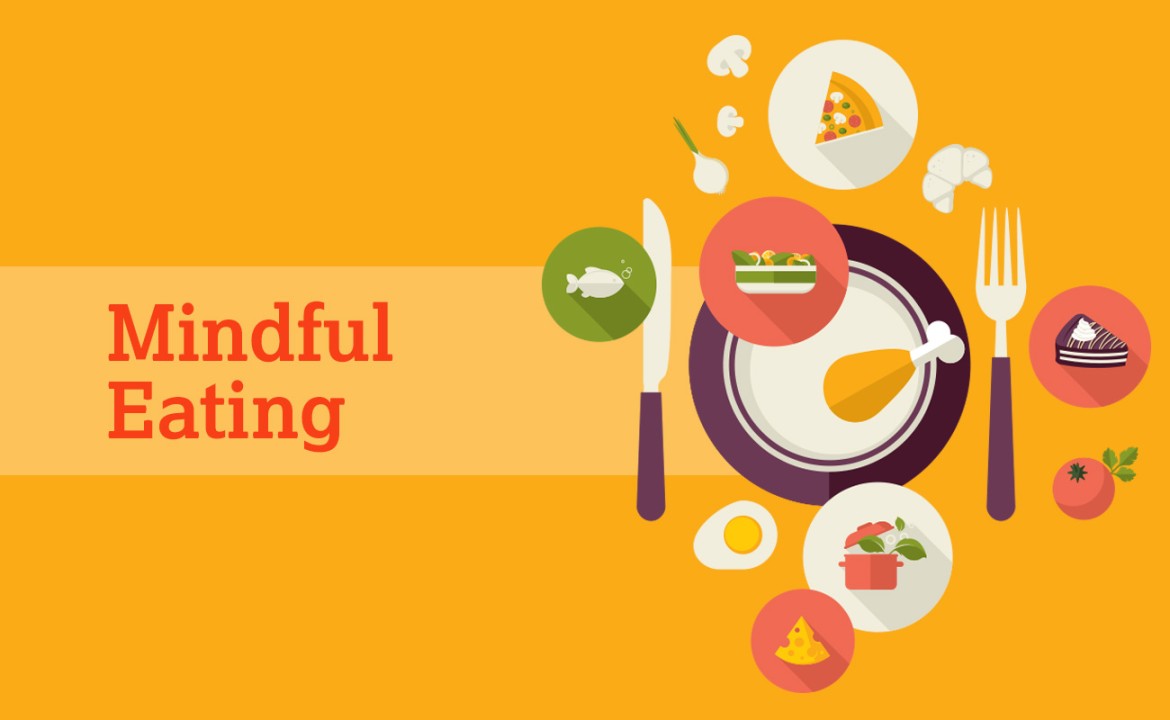Mindful Eating Practices for Fitness Success: Cultivate a Sustainable and Enjoyable Journey
Ever feel like you’re constantly battling the bulge? You hit the gym regularly, huff and puff through cardio sessions, only to see minimal results on the scale?
The truth is, fitness success hinges on a two-pronged approach: exercise and mindful eating. While exercise burns calories, mindful eating empowers you to make conscious food choices that fuel your body and align with your fitness goals.
This article dives deep into the world of mindful eating, unpacking its core principles and equipping you with practical strategies to transform your relationship with food.
We’ll explore how mindful eating goes beyond mere calorie counting, fostering a sustainable and enjoyable approach to healthy eating that complements your fitness journey.

Why Mindful Eating Matters for Fitness
Let’s face it, traditional restrictive diets often backfire. They leave you feeling deprived, leading to cravings and binge-eating episodes. Mindful eating, however, flips the script.
Here’s how:
-
Boosts Body Awareness: Mindful eating teaches you to listen to your body’s hunger and fullness cues. You learn to differentiate between true hunger pangs and emotional eating triggered by stress or boredom. This awareness empowers you to eat intuitively, stopping when satisfied rather than stuffing yourself.
-
Improves Food Choices: By slowing down and savoring each bite, you appreciate the sensory experience of food. This mindful approach naturally steers you towards healthier options that deliver more satisfaction with fewer calories. Imagine the difference between mindlessly inhaling a bag of chips and savoring a bowl of fresh, colorful vegetables.
-
Reduces Emotional Eating: Often, we turn to food for comfort or to numb negative emotions. Mindful eating helps you identify these emotional triggers and develop healthier coping mechanisms. By acknowledging your emotions without resorting to food, you break free from the cycle of emotional eating.
-
Supports Long-Term Success: Mindful eating isn’t a fad diet; it’s a lifestyle shift. It equips you with the tools to navigate your relationship with food in a healthy and sustainable way. This sets you up for long-term fitness success, fostering a positive and empowered approach to healthy eating.
Unveiling the Core Principles of Mindful Eating
Mindful eating isn’t about deprivation; it’s about mindful connection. Here are the key principles to embrace:
-
Present Moment Focus: Put away distractions like phones and laptops during meals. Focus on the present moment, savoring the sights, smells, textures, and tastes of your food.
-
Slow Down and Savor: Chew your food thoroughly, taking small bites and putting your utensils down between bites. This allows your body to register satiety signals, preventing overeating.
-
Honor Your Hunger Cues: Learn to recognize hunger pangs, not just cravings. Eat when you’re truly hungry, and stop when comfortably full. Don’t wait until you’re ravenous, which can lead to overeating.
-
Embrace Non-Judgment: Let go of guilt and shame around food. Instead, approach your meals with curiosity and kindness towards yourself.
-
Gratitude for Food: Take a moment to appreciate the food on your plate. Consider the journey it took – from farm to table – and cultivate gratitude for nourishing your body.

Practical Strategies for Mindful Eating
Now that you understand the core principles, let’s translate them into actionable steps:
-
Create a Calm Environment: Dim the lights, put on some relaxing music, and avoid distractions like TV or smartphones while eating.
-
Practice Gratitude: Before digging in, take a moment to appreciate the food on your plate. You can say a silent thank you or offer a simple prayer.
-
Engage Your Senses: Notice the colors, aromas, textures, and flavors of your food. This heightened awareness deepens your appreciation for the meal.
-
Chew Thoroughly: Aim for at least 20-30 chews per bite. This not only improves digestion but also allows your body time to register satiety signals.
-
Put Down Your Utensils: Between bites, place your fork or spoon down. This helps you slow down your eating pace and prevents mindless shoveling.
-
Start Small & Be Patient: Building mindful eating habits takes time and practice. Start by incorporating one or two strategies at a time. Gradually, these practices will become second nature.

Beyond the Plate: Cultivating a Mindful Relationship with Food
Mindful eating extends beyond the act of eating itself. Here’s how to cultivate a mindful approach to food throughout your day:
-
Plan Your Meals: Taking time to plan your meals and snacks helps you make conscious choices and avoid unhealthy impulse decisions.
-
Read Food Labels: Become familiar with ingredients and portion sizes. Understanding what you’re putting into your body empowers you to make informed choices.
-
Mindful Grocery Shopping: Shop on a full stomach to avoid impulsive purchases. Make a list and stick to it, prioritizing whole, unprocessed foods.
-
Beware of Marketing Hype: Don’t fall prey to deceptive marketing tactics. Focus on the actual nutritional value of food, not empty promises.
-
Cook More Often: Cooking at home allows you to control ingredients and portion sizes. Experiment with healthy recipes that are both delicious and nutritious.
-
Embrace Imperfections: There will be days when you veer off track. Don’t beat yourself up. Acknowledge it, learn from it, and recommit to mindful eating practices.
Mindful Eating for Different Dietary Needs
Mindful eating isn’t a one-size-fits-all approach. Here’s how to adapt it to various dietary needs:
-
Vegetarian/Vegan Diets: Focus on a variety of plant-based proteins, healthy fats, and complex carbohydrates to ensure you’re getting all the essential nutrients.
-
Weight Loss Goals: Mindful eating can be a powerful tool for weight management. By honoring your hunger cues and making mindful choices, you’ll naturally gravitate towards a calorie deficit.
-
Managing Medical Conditions: If you have a pre-existing health condition, consult a registered dietitian to tailor a mindful eating plan that complements your medical needs.

Harnessing Technology for Mindful Eating
Technology can be a valuable tool to support your mindful eating journey. Consider these resources:
-
Mindfulness Apps: Several apps offer guided meditations and exercises to cultivate present-moment awareness and emotional regulation, which can benefit mindful eating practices.
-
Meal Planning Apps: Use apps to plan healthy meals, create grocery lists, and track your progress.
-
Calorie Tracking Apps: While calorie counting shouldn’t be the sole focus, some apps can help you gain awareness of your overall calorie intake, provided you use them mindfully.

Debunking Mindful Eating Myths
Here are some common myths about mindful eating, debunked:
-
Myth: Mindful Eating Takes Too Much Time: While slowing down initially might take some time, mindful eating becomes more efficient as it becomes a habit.
-
Myth: Mindful Eating Means Deprivation: It’s about mindful connection, not deprivation. You can still enjoy all your favorite foods in moderation.
-
Myth: Mindful Eating is Just a Fad: Mindful eating is a sustainable approach to healthy eating that can benefit you for life.

Conclusion
By embracing mindful eating practices, you’ll cultivate a healthier relationship with food, one that supports your fitness goals and overall well-being.
Remember, mindful eating is a journey, not a destination.
There will be setbacks, but with patience and practice, you’ll develop a sustainable and enjoyable approach to healthy eating that fuels your body and empowers you to reach your fitness goals.
FAQs
Is mindful eating the same as intuitive eating?
Mindful eating and intuitive eating share many similarities. Both emphasize listening to your body’s hunger and fullness cues and developing a neutral relationship with food. However, mindful eating places a greater focus on the sensory experience of food, while intuitive eating emphasizes trusting your body’s wisdom to guide your food choices.
I have a busy lifestyle. How can I make time for mindful eating?
Even small changes can make a big difference. Start by incorporating mindful eating practices into one meal a day. Gradually, you’ll find it easier to slow down and savor your food throughout the day.
What if I find myself constantly mindlessly snacking?
Mindful eating is a journey, and there will be setbacks. If you find yourself mindless snacking, acknowledge it without judgment. Try to identify the trigger (boredom, stress) and develop healthier coping mechanisms.
Are there any resources available to help me get started with mindful eating?
Absolutely! There are numerous books, websites, and apps dedicated to mindful eating. Consider enrolling in a mindfulness course or consulting a registered dietitian for personalized guidance.
I’m worried mindful eating won’t be effective for weight loss. Can it really help?
Mindful eating can be a powerful tool for weight loss. By honoring your hunger cues and making mindful choices, you’ll naturally gravitate towards a calorie deficit. However, mindful eating is not solely focused on weight loss; it’s about cultivating a healthy relationship with food that promotes overall well-being and a sustainable lifestyle.
Verified Source References
- Keys to Successful Mindful Eating: Mayo Clinic https://newsnetwork.mayoclinic.org/discussion/mayo-clinic-minute-mindfulness-while-eating/
- A Beginner’s Guide to Mindful Eating: National Center for Complementary and Integrative Health https://pubmed.ncbi.nlm.nih.gov/33279464/)
- Mindful Eating for Weight Loss: Academy of Nutrition and Dietetics https://www.eatright.org/

















Leave a Reply